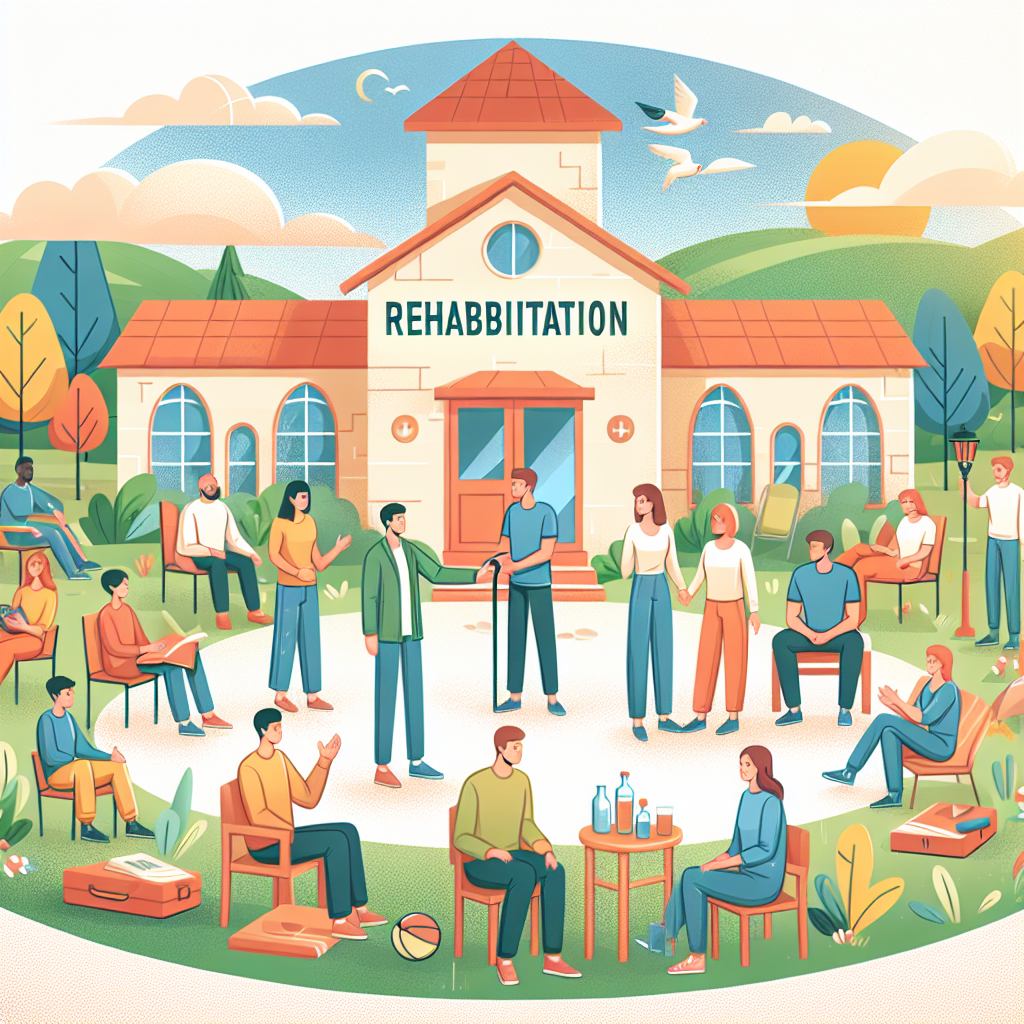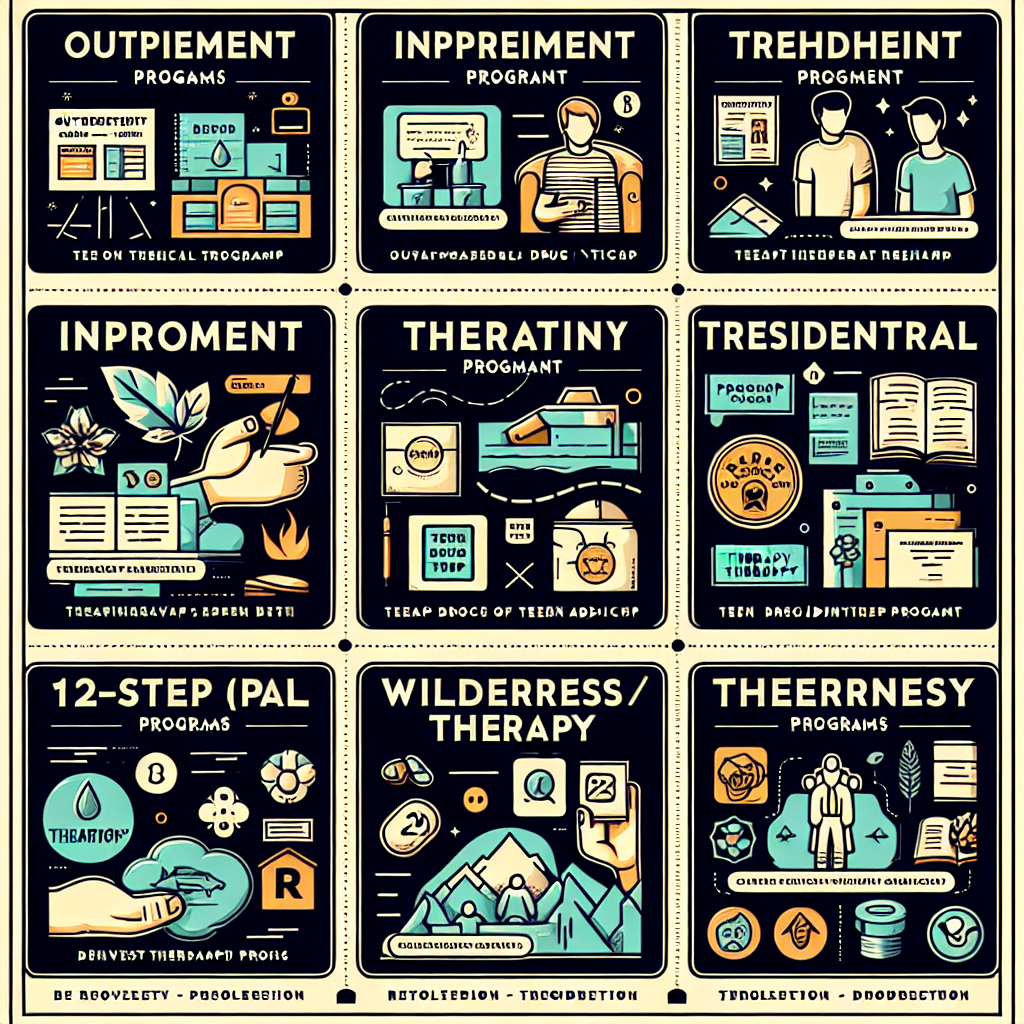-
Table of Contents
“Rehab: Empowering Young Adults to Conquer Eating Disorders and Embrace a Healthier Future.”
Introduction
Eating disorders, such as anorexia nervosa, bulimia nervosa, and binge-eating disorder, are complex mental health conditions that can have severe physical and emotional consequences. For young adults grappling with these disorders, the journey to recovery can be particularly challenging due to the unique pressures and transitions they face during this stage of life. Rehabilitation programs play a crucial role in empowering young adults to overcome eating disorders by providing comprehensive, individualized care that addresses the multifaceted nature of these conditions. Through a combination of medical treatment, psychological support, nutritional counseling, and life skills training, rehab centers create a structured and supportive environment where young adults can develop healthier relationships with food, their bodies, and themselves. By fostering resilience, self-awareness, and coping strategies, rehab empowers young adults to reclaim their lives and build a foundation for long-term recovery and well-being.
Building Resilience: How Rehab Programs Help Young Adults Conquer Eating Disorders
Eating disorders are complex mental health conditions that can have severe physical and emotional consequences. For young adults, these disorders often coincide with critical developmental stages, making timely and effective intervention crucial. Rehab programs designed specifically for young adults play a pivotal role in helping them overcome these challenges, fostering resilience and empowering them to reclaim their lives.
One of the primary ways rehab programs assist young adults is by providing a structured environment where they can focus on recovery without the distractions and pressures of daily life. This safe space allows individuals to confront their eating disorders head-on, supported by a team of professionals who understand the unique needs of this age group. Through a combination of medical care, nutritional counseling, and psychological support, these programs address the multifaceted nature of eating disorders, ensuring that all aspects of the individual’s health are considered.
Moreover, rehab programs emphasize the importance of building a strong support network. Young adults often feel isolated in their struggles, but being surrounded by peers who are facing similar challenges can be incredibly validating and encouraging. Group therapy sessions offer a platform for sharing experiences and coping strategies, fostering a sense of community and mutual understanding. This collective support not only helps individuals feel less alone but also provides them with practical tools to manage their recovery.
In addition to peer support, rehab programs often incorporate family therapy, recognizing that the involvement of loved ones can be instrumental in the healing process. Families are educated about the nature of eating disorders and taught how to provide appropriate support, creating a more nurturing home environment that reinforces the progress made in rehab. This holistic approach ensures that young adults have a robust support system both during and after their time in the program.
Another critical component of rehab programs is the focus on developing healthy coping mechanisms. Many young adults turn to disordered eating as a way to manage stress, anxiety, or other emotional difficulties. Rehab programs teach alternative strategies for dealing with these emotions, such as mindfulness, meditation, and creative expression. By equipping individuals with these tools, rehab programs help them build resilience and reduce the likelihood of relapse.
Furthermore, rehab programs often include educational components that empower young adults to make informed decisions about their health. Workshops on nutrition, body image, and self-care provide valuable knowledge that can be applied long after the program has ended. This education fosters a sense of autonomy and confidence, enabling individuals to take control of their recovery journey.
The journey to overcoming an eating disorder is undoubtedly challenging, but rehab programs offer a beacon of hope for young adults. By providing a comprehensive, supportive, and empowering environment, these programs help individuals build the resilience needed to conquer their eating disorders and lead fulfilling lives. The skills and insights gained during rehab not only facilitate recovery but also lay the foundation for long-term well-being.
In conclusion, rehab programs play an essential role in helping young adults overcome eating disorders by offering a structured, supportive, and educational environment. Through a combination of medical care, peer and family support, and the development of healthy coping mechanisms, these programs empower individuals to build resilience and reclaim their lives. The journey may be arduous, but with the right support, young adults can emerge stronger and more capable of facing life’s challenges.
Transformative Healing: The Role of Rehabilitation in Empowering Young Adults with Eating Disorders
Eating disorders are complex mental health conditions that can have devastating effects on young adults, impacting their physical health, emotional well-being, and overall quality of life. However, rehabilitation programs offer a beacon of hope, providing the necessary tools and support to empower young adults to overcome these challenges. Through a combination of medical care, psychological support, and holistic therapies, rehab centers create a transformative healing environment that fosters recovery and personal growth.
One of the most significant aspects of rehabilitation for eating disorders is the comprehensive medical care provided. Young adults often enter rehab in a physically compromised state, suffering from malnutrition, electrolyte imbalances, and other health issues. Medical professionals in rehab centers work diligently to stabilize these conditions, ensuring that patients receive the necessary nutrients and medical interventions to restore their physical health. This foundational step is crucial, as it allows individuals to regain the strength needed to engage fully in the therapeutic aspects of their recovery journey.
In addition to medical care, psychological support plays a pivotal role in the rehabilitation process. Eating disorders are often rooted in deep-seated emotional and psychological issues, such as low self-esteem, anxiety, and trauma. Rehab centers employ a range of therapeutic approaches, including cognitive-behavioral therapy (CBT), dialectical behavior therapy (DBT), and family therapy, to address these underlying issues. Through individual and group therapy sessions, young adults learn to identify and challenge distorted thought patterns, develop healthier coping mechanisms, and build a more positive self-image. This psychological healing is essential for long-term recovery, as it equips individuals with the skills needed to navigate life’s challenges without resorting to disordered eating behaviors.
Moreover, rehabilitation programs recognize the importance of holistic therapies in promoting overall well-being. Activities such as yoga, meditation, art therapy, and equine therapy provide young adults with alternative ways to express themselves, manage stress, and connect with their bodies in a positive manner. These holistic approaches complement traditional therapies, offering a well-rounded treatment plan that addresses the mind, body, and spirit. By engaging in these activities, individuals can discover new passions, build self-confidence, and develop a sense of inner peace, all of which contribute to their recovery journey.
Another critical component of rehabilitation is the sense of community and support that it fosters. Young adults with eating disorders often feel isolated and misunderstood, but rehab centers provide a safe and nurturing environment where they can connect with others who share similar experiences. This sense of camaraderie and mutual support can be incredibly empowering, as individuals realize they are not alone in their struggles. Group therapy sessions, support groups, and communal activities create opportunities for young adults to share their stories, offer encouragement, and celebrate each other’s progress. This supportive network can be a powerful motivator, helping individuals stay committed to their recovery goals.
Furthermore, rehabilitation programs emphasize the importance of aftercare and ongoing support. Recovery from an eating disorder is a lifelong journey, and rehab centers equip young adults with the resources and strategies needed to maintain their progress after leaving the program. This may include continued therapy, support groups, nutritional counseling, and relapse prevention planning. By providing a robust aftercare plan, rehab centers ensure that individuals have the support they need to navigate the challenges of everyday life and sustain their recovery.
In conclusion, rehabilitation programs play a transformative role in empowering young adults to overcome eating disorders. Through comprehensive medical care, psychological support, holistic therapies, and a strong sense of community, rehab centers create an environment conducive to healing and personal growth. By addressing the physical, emotional, and psychological aspects of eating disorders, these programs equip young adults with the tools and support needed to reclaim their lives and build a healthier, more fulfilling future.
Q&A
1. **Question:** How does rehab provide a supportive environment for young adults with eating disorders?
**Answer:** Rehab offers a structured and safe environment where young adults receive professional medical and psychological support, peer encouragement, and a community that understands their struggles, which fosters recovery and empowerment.
2. **Question:** What therapeutic approaches are commonly used in rehab to help young adults overcome eating disorders?
**Answer:** Common therapeutic approaches include Cognitive Behavioral Therapy (CBT), Dialectical Behavior Therapy (DBT), family therapy, nutritional counseling, and experiential therapies such as art or equine therapy, all aimed at addressing the underlying issues and promoting healthy coping mechanisms.
Conclusion
Rehabilitation empowers young adults to overcome eating disorders by providing a structured environment that combines medical, psychological, and nutritional support. Through individualized treatment plans, therapy sessions, and education, rehab helps individuals develop healthier coping mechanisms, rebuild self-esteem, and establish a balanced relationship with food. The comprehensive approach addresses the underlying issues contributing to the disorder, fostering long-term recovery and resilience.



